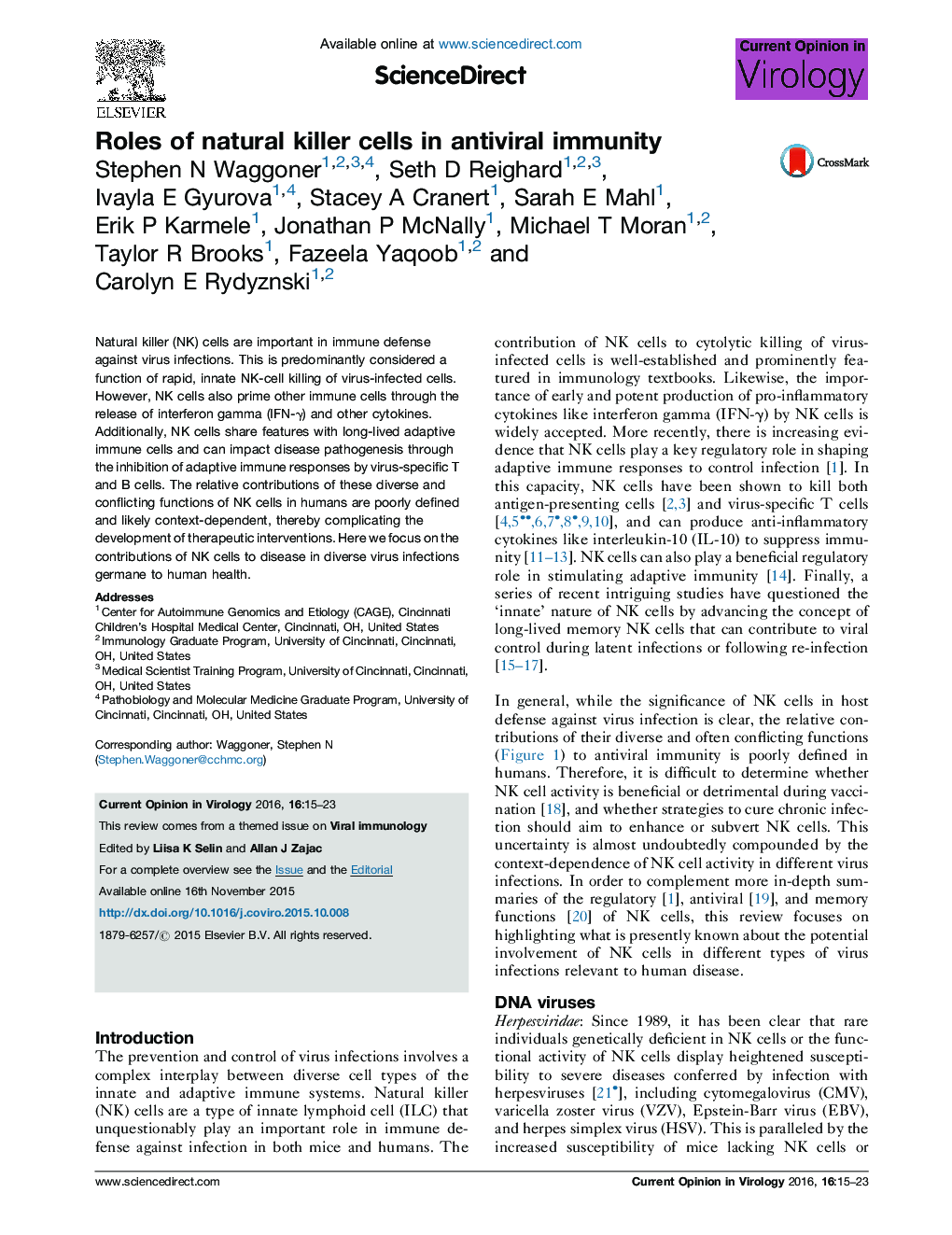| Article ID | Journal | Published Year | Pages | File Type |
|---|---|---|---|---|
| 5806657 | Current Opinion in Virology | 2016 | 9 Pages |
â¢NK cells can kill virus-infected cells and protect against severe infections.â¢Long-lived memory NK cells may develop after vaccination or infection.â¢NK cells are potent regulatory of antiviral T and B cell responses.â¢The role of NK cells in human infection is complex and context-dependent.
Natural killer (NK) cells are important in immune defense against virus infections. This is predominantly considered a function of rapid, innate NK-cell killing of virus-infected cells. However, NK cells also prime other immune cells through the release of interferon gamma (IFN-γ) and other cytokines. Additionally, NK cells share features with long-lived adaptive immune cells and can impact disease pathogenesis through the inhibition of adaptive immune responses by virus-specific T and B cells. The relative contributions of these diverse and conflicting functions of NK cells in humans are poorly defined and likely context-dependent, thereby complicating the development of therapeutic interventions. Here we focus on the contributions of NK cells to disease in diverse virus infections germane to human health.
Graphical abstractDownload high-res image (126KB)Download full-size image
